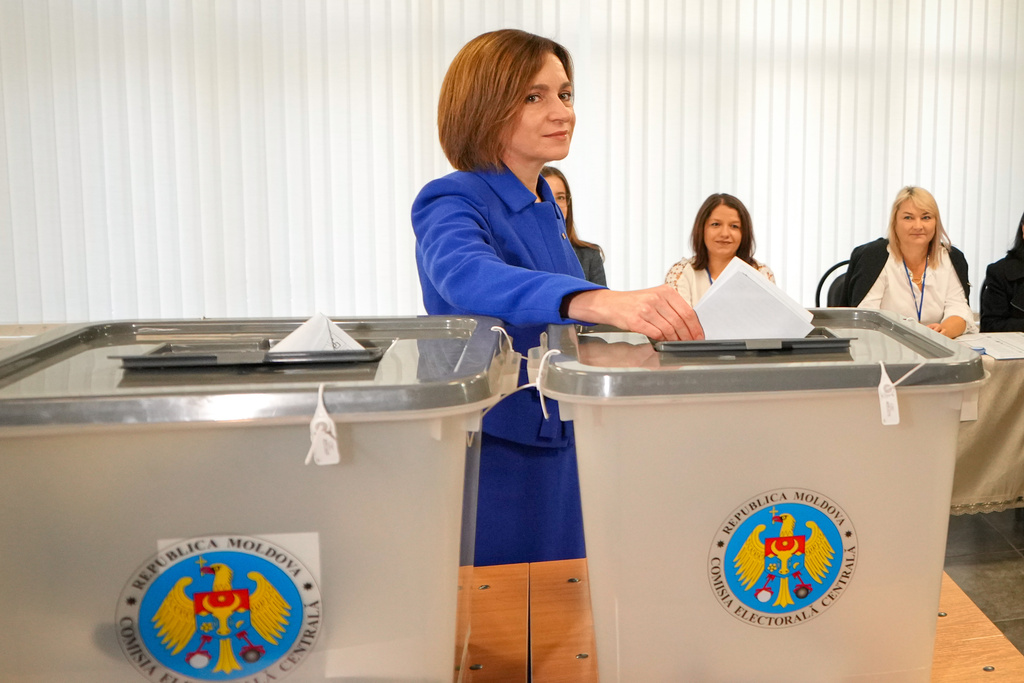Moldova Votes in Parliamentary Election Testing Pro-EU Course

On Sunday morning, Moldovans went to the polls in parliamentary elections that could determine whether the country stays on its pro-European course.
The Gaze reports this, referring to Newsmaker.
On September 28 at 7:00, polling stations opened across Moldova and will operate until 21:00; at overseas polling stations for the diaspora in Asia, voting began earlier, according to local time.
Citizens of Moldova are electing 101 deputies for a four-year term. Fourteen parties, four electoral blocs, and four independent candidates are participating in the elections.
The electoral threshold is 5% for parties, 7% for blocs, and 2% for independent candidates.
The parliamentary race is expected to be dominated by a contest between the ruling Party of Action and Solidarity (PAS) and the Patriotic Bloc, an alliance of Socialists, Communists, the Heart of Moldova party, and the Future of Moldova party.
For the first time in these elections, a postal voting option is available for Moldovan citizens in 10 countries. In total, 301 polling stations are open abroad across 41 countries.
It should be noted that previous elections showed that the vast majority of Moldova’s diaspora supports the country’s pro-Western course, so the votes of these citizens are extremely important for the ruling Party of Action and Solidarity (PAS).
For citizens from Transnistria, who mostly support pro-Russian forces, 12 polling stations were opened on the right bank of the Dniester.
The location of several such polling stations was changed at the last moment, explained as being for security reasons, which in practice complicated access to them.
Earlier, the authorities of the unrecognized Transnistria also accused Chisinau of “provocation” in connection with the repair of all seven bridges across the Dniester, which may also hinder voters’ travel.
In turn, President Maia Sandu and the government have long stated that they expect large-scale attempts by Russia to influence the elections in order to bring “friendly” forces to power and derail Moldova’s European integration.
Bloomberg reported on a Russian plan to influence the elections in Moldova, the BBC published an investigation into disinformation in Moldova before the elections financed by Russia, and Reuters reported on how Orthodox priests from Moldova were systematically invited on generous pilgrimage tours to Moscow and then offered money in exchange for spreading propaganda in the Kremlin’s interests among their parishioners.
Read more on The Gaze: Moldova’s 2025 Elections: A Decisive Moment for the Country’s European Course